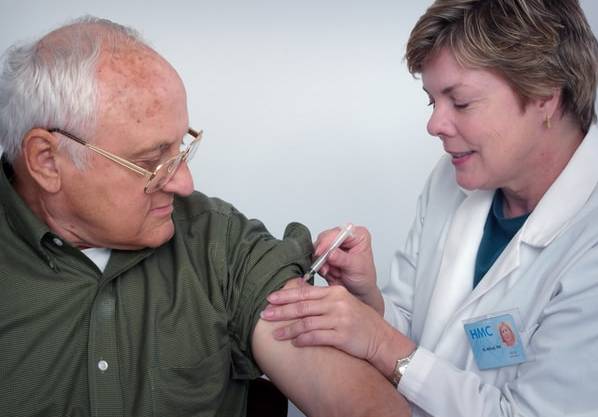
With the end of Medicare’s Annual Enrollment Period rapidly approaching and news of possible COVID-19 vaccines on the way, you may be wondering, “What vaccines does Medicare cover?” The answer may surprise you!
While some vaccinations are covered by Medicare Part B, others are only covered in Medicare Part D, also called a prescription drug plan or PDP. Some vaccinations may not be covered by Medicare at all!
Vaccinations are typically associated with kids, who get several rounds of shots leading up to adulthood. As we age, our immune systems weaken, making us more susceptible to serious complications from preventable diseases like influenza, pneumonia, shingles, and COVID-19. Staying up-to-date on vaccinations is critical to maintaining your health, especially for Medicare beneficiaries.
Medicare Part B
Part B covers vaccinations that the Centers for Medicare and Medicaid Services (CMS) has deemed necessary for all beneficiaries.
- Flu Vaccine: One shot per flu season, typically administered in the fall or winter.
- Pneumococcal Vaccines: Both the PCV15 and PCV20 vaccines are covered to protect against pneumococcal pneumonia, a leading cause of illness in older adults.
- Hepatitis B Vaccine: Covered for individuals at medium or high risk of Hepatitis B, such as those with diabetes, end-stage renal disease, or certain other conditions. The vaccine is administered in a series of three shots over six months.
- COVID-19 Vaccines: All FDA-approved or authorized COVID-19 vaccines, including boosters, are fully covered under Part B with no out-of-pocket costs.
- Other Emergency Vaccines: Part B also covers vaccines required after an injury or exposure to a disease, such as tetanus shots after a cut or rabies vaccines after an animal bite.
Note: The Hepatitis B vaccine is only covered under Part B for high-risk individuals. Part D may cover the vaccine for low to moderate-risk individuals. Even if the vaccine is covered, administering it may not be. So, check with your plan and healthcare provider before proceeding to ensure you know of any associated costs.
Medicare Part D
Part D covers most other vaccinations; however, covered vaccines vary from company to company. Since PDPs are only offered through private insurance companies and not through the federal government, each company may choose to leave certain vaccines out of their formulary or a list of covered medications. Most companies still include all vaccines Medicare beneficiaries should need, but it is always a good idea to check your provider’s formulary before visiting a doctor’s office or clinic.
Most Part D plans include:
- Shingles Vaccine: The Shingrix vaccine, which requires two doses, is covered under Part D. Shingles can be debilitating for older adults, so this vaccine is recommended for those 50 and older.
- Tetanus-Diphtheria-Pertussis (Tdap) Vaccine: This combination vaccine protects against three serious diseases and typically is covered under Part D.
- Travel Vaccines: If you’re planning international travel, vaccines like yellow fever or typhoid may be covered under Part D, but you’ll need to check your plan’s formulary.
Important: Part D plans have formularies (lists of covered drugs), and not all vaccines may be included. Always review your plan’s formulary or contact your provider to confirm coverage before getting vaccinated. You can always reach out to us to confirm what your plan does or does not cover.
What’s New in 2025?
- Expanded COVID-19 Coverage: With new variants emerging, Medicare continues to cover all recommended COVID-19 vaccines and boosters at no cost to beneficiaries.
- RSV Vaccine: The Respiratory Syncytial Virus (RSV) vaccine, which protects older adults from severe respiratory illness, is now covered under Part D for eligible beneficiaries.
Where to Get Vaccinated
- Primary Care Physicians: Your doctor’s office is often the best place to receive vaccines, as they can review your medical history and recommend the right vaccinations.
- Pharmacies: Most local pharmacies, including chains like CVS, Walgreens, and Walmart, offer vaccinations. Ensure the pharmacy is enrolled in Medicare if you have Original Medicare or is in-network if you have a Medicare Advantage plan.
- Community Health Clinics: These clinics often provide low-cost or free vaccinations for Medicare beneficiaries.
Note: If you have Original Medicare, make sure the provider can bill Medicare directly to avoid upfront costs. If you have a Medicare Advantage Plan, confirm that the provider is in-network to prevent surprise bills.
Got Medicare Questions?
We hope that this information on vaccines is useful to you.
Let us help you answer your questions so that you can get back to the activities that you enjoy the most.
Call (888) 446-9157, click here to get an INSTANT QUOTE, or leave a comment below!
See our other websites:
This article was updated on 2/21/2025.

